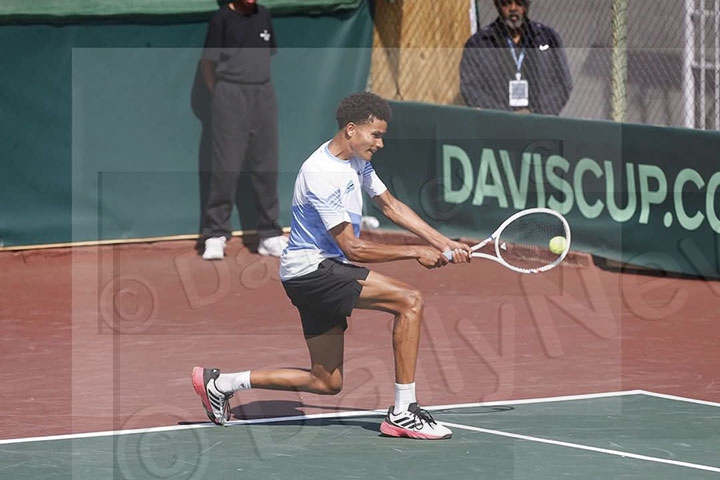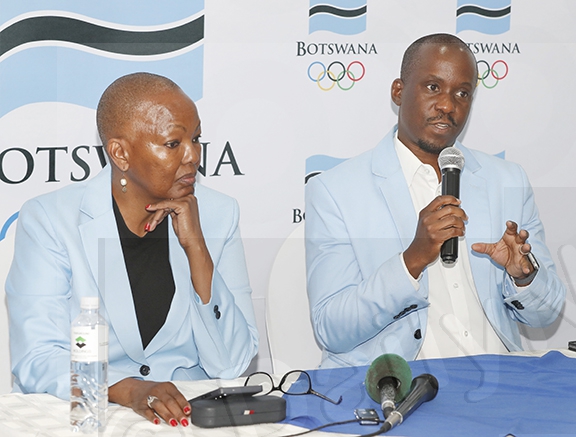Chess guru trains teachers
09 Jan 2020
A South Africa Chess Guru says chess is the largest participating sport in the world above soccer.
Marisa van der Merwe, the managing director and founder of Mini Chess programme, which is being implemented in most schools in South Africa, said despite chess having a long history that dates back to 3000 BC based on primitive war strategies, chess still remains relevant to the lives of many.
She said 179 countries are affiliated to the mother body FIDE, which is the world Chess Federation, a testimony that chess still remains a huge sport.
Van der Merwe was facilitating at a three-day Mini chess workshop organised by the Francistown Schools of Chess for upcoming mini chess teachers, who will later teach the programme in schools at the University of Botswana Francistown campus this week.
The Mini chess programme is a thinking curriculum programme that empowers pupils by helping them understand maths, science, and life skills through chess in order to improve problem-solving and reasoning as well as boosting school readiness and self-esteem.
Van der Merwe explained that the mini chess programme was developed over the years of teaching chess to entry phase learners aged between five to eight.
She therefore, said it was important that the programme be introduced in the school curriculum in Botswana because as a teaching or educational tool.
She explained that the programme involved two methods of learning that included learning styles and the spatial structure application that involved the three D dimension style.
The learning style method involves visual, tactile, auditive, social interaction, oral, individual and kinetic.
“Some students prefer to learn through visual, others through tactile, others through auditive, some through social interaction while others prefer oral method,” she added.
In addition, she explained that chess had some educational benefits that included enjoyment, listening exercise, literacy, memory, social role play and life skills.
Van Der Merwe explained further that the game of chess was an important source of economic development as it developed corporate skills among young learners.
She said 70 per cent of the required jobs globally required science-based skills and chess was no exception as countries entered into the fourth industrial revolution in which economies were driven by innovation, invasion and creativity with the use of the internet in the centre of the economy.
“Because the programme is economical, time and money wise it is a big advantage,” said van der Merwe.
She therefore, said if the programme was introduced in schools, learners would benefit a lot as it was a proven fact that chess exercised and developed intelligence, thinking skills, creativity and memory as well as building a foundation for learning mathematics, science and life skills.
Meanwhile, the founder of Francistown School of Chess, Jeremiah Dikgang explained that the main objective of the workshop was to train mini chess teachers who would later teach the programme in schools and was a ground-breaking initiative to introduce mini chess to Botswana.
“We want to introduce an initiative that stands to enrich the Botswana education,” he added.
Dikgang explained that his academy intended to run two more similar workshops this year, adding that it would depend on whethre more schools buy the initiative, which in turn would need more mini teachers.
The mini chess programme uses tried and tested methods for teaching chess to little ones, including the use of so called ‘Mini chess’ games.
The learning process is broken down into small steps, building confidence while keeping fun and it is in line with the skills level of young child at the specific age.
The programme consists of four levels, with each grade accommodating the continual development of skills and capacity as the child grows. The programme continually links chess concepts with mathematics, science and life skills.
The workshop, the first of its kind in Botswana and held under the theme; Empowering young minds for a bright future, attracted chess players both young and old from various chess academies from the north and south. Ends
Source : BOPA
Author : Thamani Shabani
Location : Francistown
Event : Interview
Date : 09 Jan 2020






